I have never lived a life without magic. Some of my earliest memories are of sitting on my aunties’ laps as they regaled me with stories of the spider trickster Anansi and other folktales from our homeland of Ghana. The tales were as varied, some fables of animal icons while others sprawling epics for kings and queens, but one element that remained constant was the magic. It was a living, breathing part of the world, as real as your own face or name. And it always, always had a price. In the old stories, if you wanted something extraordinary done, you’d better be ready to pay an extraordinary cost for it—a cost that was rarely so simple as money.
This philosophy is one that features heavily in my book A Psalm of Storms and Silence, the sequel to A Song of Wraiths and Ruin. In the first book, my protagonists Malik and Karina each had a wish they were quite literally willing to kill for—the former to save his sister from a vengeful spirit, the latter to resurrect her mother from the dead. Both entangled themselves with forbidden magic to see their wishes come to fruition. Now, in the sequel, they must deal with the far-reaching consequences of their actions, as the magical forces they used to try to obtain their desires have come with a vengeance to collect their debts.
The only thing I find more fun than writing about perilous magic systems is reading about them. Here are five of my favorite books that feature magic systems with steep costs. Read on, friends—if you’re willing to pay the price.
The Belles by Dhonielle Clayton
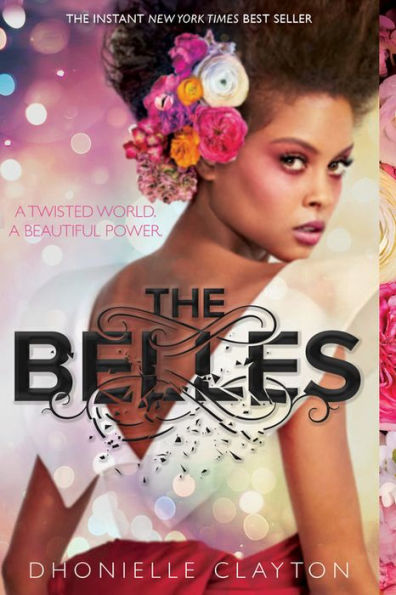
On the surface, the world of The Belles is a decadent, whimsical delight where balloons deliver your mail, tiny teacup animals dance in your palm, and everyone is beautiful. As the creators of beauty, the titular Belles are the most powerful beings in this world, but below their glittering façade lies a sinister reality that questions what it really means to live in a society where beauty is king. Clayton deftly peels back the layers of her magic to show how even the most beautiful of societies are often built on the subjugation of others. The beauty the Belles create is revealed to be a form of control upon the population, and overusing their powers leads to bodily mutilation, disfiguration, and even death. Plus, despite the privilege their position affords them, a gilded cage is still a cage, and the Belles learn that all the power in the world means nothing if you aren’t free to make choices about your own life.
Kingdom of Souls by Rena Barron
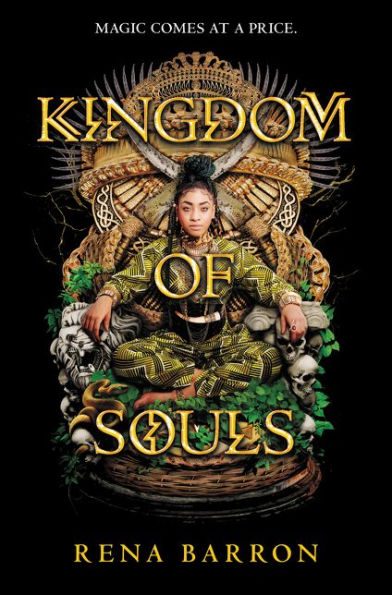
Arrah comes from a long line of witchdoctors, but has no power herself. But when the children in her kingdom start disappearing, she turns to a forbidden ritual that promises her magic in exchange for literal years off her life. As a West African immigrant, the mythos that Barron draws on in her work were wonderfully familiar, and it was both compelling and heartbreaking to watch Arrah literally rip her own life apart for just the chance of magic. But through a series of twists and turns that’ll literally have you throwing the book in shock, Kingdom of Souls proves there are some prices too high to pay for even your wildest dreams.
Jade Fire Gold by June CL Tan
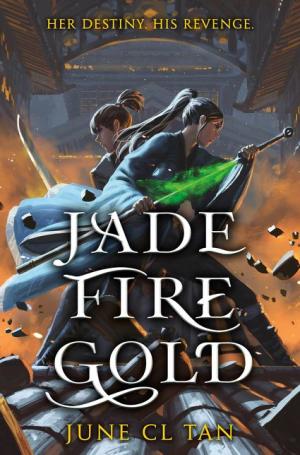
What if you could have everything you ever wanted for the small price of other people’s souls? This is the dilemma Ahn, the protagonist of Jade Fire Gold, finds herself in when she realizes that she is the Life Stealer. Having grown up in poverty with no one to rely on but her ailing adopted grandmother, Ahn’s discovery of her powers at first seems like the ticket to a better life. But the more powerful she grows, the more of her humanity she loses, and the closer she gets to becoming one of the monsters that destroyed her life. Ahn soon she finds herself at the center of a generations long war that she could either end or escalate. This sweeping and epic tale is a perfect example of how magic itself is less important than the choices one makes with it.
Jade City by Fonda Lee
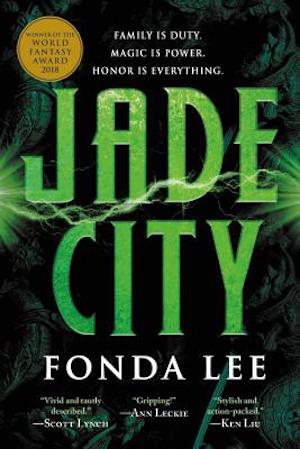
On the island nation of Kekon, jade is king, and the Green Bones who can harness its power gain enhanced skills and abilities that have made them the backbone of their society. But jade can be a corrupting force as well, driving some people to literal madness and exacerbating the fault lines within the already divided country. Jade City follows the Kaul family as they struggle to hold onto power in a rapidly changing world full of threats but close to home and across the sea. Lee expertly avoids the pitfall of having jade be wholly good or bad, and instead explores how the meaning and relevance of the substance changes depending on social and political contexts. For some, the obvious risks of jade make it not worth the trouble, but Lee convinces us why her characters would risk life and limb for a substance that causes so much strife.
The Gilded Ones by Namina Forna
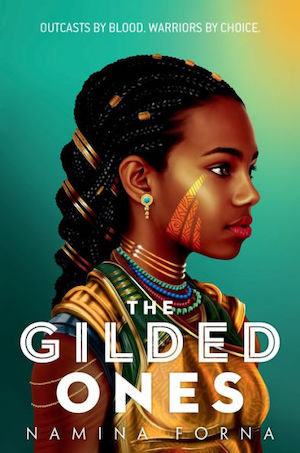
Namina Forna describes her epic YA Fantasy The Gilded Ones as “If the Dora Milaje from Black Panther were trapped in the Handmaid’s Tale” and it’s not difficult to see why. The Alaki of her world are a powerful warrior class that are both faster and stronger than the average human, and literally impervious to death. They are also mostly teenage girls, and Forna does not shy away from the violent horrors these children go through under a system that cares more about what they can do than who they are. Though their magic is great, even more powerful is watching this group of outcasts come together to find strength in each other and the very abilities that have led them to be ostracized by their homes.
Buy the Book
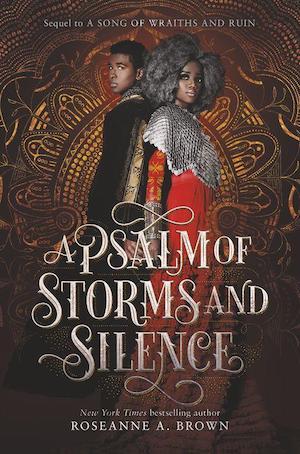

A Psalm of Storms and Silence
Roseanne A. Brown is an immigrant from the West African nation of Ghana and a graduate of the University of Maryland, where she completed the Jimenez-Porter Writers’ House program. Her work has been featured by Voice of America, among other outlets. A Song of Wraiths and Ruin is her debut novel. You can visit her online at her website.










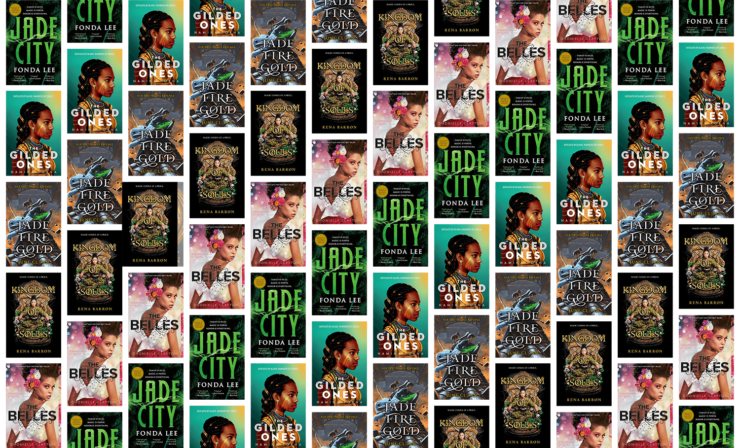
Dammit.
Now my TBR pile is even bigger.
C. S. Friedman’s Magister trilogy is a perfect example: here, magic comes at a terrible cost – a witch’s own finite life force
In Daniel Abraham’s Long Price Quartet books, being a poet and summoning the equivalent of Platonic ideals as physical beings to do your bidding is just a terrible idea. It almost always fails, killing the poet spectacularly (dare I say ‘poetically’). And when it succeeds, the resultant being is some combination of uncooperative, resentful and vicious.
Ian Tregellis “Milkweed Triptich” and Charles Stross “Laundry Files” are other good examples. “Case Nightmare Green” should definately be feared!
Le Guin’s Earthsea books are all about the cost of magic, among other things.
I am shocked that Jonathan Strange & Mr. Norrell was not included. This is a textbook example of the price of magic. It was also a critical and financial success.
Brandon Sanderson’s warbreaker should be in this list, as the magic is powered by people’s souls.
In Ben Aaronovitch’s Rivers of London series the use of magic steadily damages the user’s nervous system, resulting in a syndrome like early onset Alzheimer’s. It also fries your iPhone which I guess for some people might be as big a deal..
On a grander scale, Diane Duane in Stealing the Elf King’s Roses has a whole set of linked parallel worlds (the worst of them suspiciously like ours)whose luck and magical power have been deliberately impaired in order to ensure the magical superiority of one of them, Alfheim, and the personal immortality of its inhabitants.
Check out Katherine Kurtz’ Deryni series for many examples of the steep cost of magic.
Hi Roseanne:
Thanks for sharing “your” list; I’ll definitely be looking to try most of them as well as your two books!
Some of the other’s suggestions do not really included the (high) cost of magic as a central element of the story, which I thought was the key element of your recommendations.
However, I do have to give some props for Ben Aaronvich’s River of London series, that’s some good stuff!
Guy Kay’s The Fionavar Tapestry comes to mind also.
I would add The Invisible Life of Addie LaRue by V. E. Schwab. While the magic is not of the traditional sort, the entire book revolves around the consequences of it for the protagonist.
I should think GIDEON THE NINTH and HARROW THE NINTH offer some perspective on the price of magic–Harrow’s magic exists at the price of the lives of nearly 200 infants and the end of any children in her society at all, actually.
I’m not going to be specific because of spoiler, but Elatsoe by Darcie Little Badger has some expensive magic.
Which reminds me indirectly of Descent into Hell by Charles Williams– some magic with non-obvious prices.
Most of Modessit’s various fantasy series involve the cost of magic – The Imager series, the Recluce series being two favourites. the lead characters use their powers as necessary, but there are consequences to themselves when they over-extend, and consequences to those they love.
I particularly like the Imager series – there are lots of everyday things that happen, with details that lead you to understand that this is a society you live in – lots of little places with lots of little people are required to make a society. Almost the opposite of the way Tolkein shows middle earth, with half a dozen big places with little mention of the need for various villages along the way. Much as I like LOTR, it would never work – you need those little towns to support big cities with big armies – you can’t send farmers out to till the fields if they have to ride for 6 hours each way to get to the farms, and you need to have that much land to support big cities. Places that have an inn, a blacksmiths, (butcher/baker/candlestick maker) etc. Think about why England and Europe have so many little villages still – the kings lived in big cities, but drew their levies from hundreds of medium and small towns.